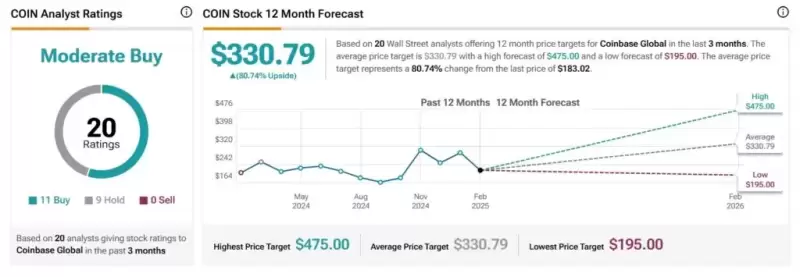 |
|
 |
|
 |
|
 |
|
 |
|
 |
|
 |
|
 |
|
 |
|
 |
|
 |
|
 |
|
 |
|
 |
|
 |
|
Cryptocurrency News Articles
a16z's Push for Uniform DAO Legal Entity Raises Decentralization Concerns
Apr 04, 2024 at 11:08 pm
Andreessen Horowitz's (a16z) promotion of Wyoming's DUNA entity for DAOs raises concerns about the potential for venture capital dominance over decentralized organizations. While acknowledging the merits of DUNAs, the author highlights the dangers of prescribing a specific legal structure for all DAOs, arguing that it may stifle innovation and undermine the principles of decentralization. The author questions a16z's assertion that DUNAs provide legal status and tax benefits, suggesting that alternative structures and strategies may be more suitable for non-US-based DAOs.

Venture Capital Giant Andreessen Horowitz's Push for Uniform DAO Legal Entity Raises Concerns over Decentralization
Introduction
The recent blog post by Andreessen Horowitz (a16z), a prominent venture capital firm in the cryptocurrency sphere, has sparked a debate within the crypto community regarding the proposed Wyoming Decentralized Unincorporated Nonprofit Association (DUNA), a new legal entity type designed for decentralized autonomous organizations (DAOs). While recognizing the potential benefits of DUNAs, concerns have been raised about a16z's intention to establish them as the "industry standard" and the implications this may have for decentralization principles.
a16z's Arguments and Rebuttals
a16z asserts that DUNAs provide legal existence for DAOs, enabling them to engage in various activities and mitigate liability risks. However, critics argue that such blanket statements oversimplify the complex landscape of DAO governance. They contend that the suitability of a legal entity varies widely depending on the specific purpose and circumstances of each DAO. For instance, the imposition of a DUNA structure may hinder the growth of DAOs seeking autonomy from traditional legal frameworks.
Tax Considerations and Potential Biases
a16z also highlights DUNAs' ability to facilitate tax payments within the United States. However, this argument has been met with skepticism, as many international DAO members seek to minimize their tax exposure to the U.S. Critics question whether DUNAs genuinely provide tax benefits for non-U.S. residents and suggest that a16z's focus on U.S. tax compliance may be influenced by its own business interests.
Alternative Approaches to Liability Management
While acknowledging the issue of liability faced by DAO members, critics challenge a16z's claim that a legal entity wrapper is the only solution. They propose alternative approaches, such as private contracts between DAO members, which allow individuals to "opt out" of their local jurisdictions and adhere to mutually agreed-upon rules. Such structures have been successfully implemented in existing DAOs and provide a viable alternative to traditional legal entities.
Dangers of Uniform Legal Standards for DAOs
Critics emphasize the risks associated with attempting to establish a uniform legal entity structure for DAOs. They argue that the crypto landscape is still evolving, and premature standardization could stifle innovation and impede the development of diverse legal approaches tailored to specific DAO needs. Moreover, they express concern that concentrating the fate of decentralized networks in the hands of a single legislator, such as Wyoming, undermines the principles of decentralization.
Balancing Innovation and Decentralization
While recognizing the potential value of DUNAs as one option among many, critics caution against overreliance on a single legal entity type. They emphasize the importance of considering a wide range of options, including those that exist outside the U.S., and advocate for the preservation of code and communities' ability to operate autonomously without legal wrappers. They warn that any attempt to impose a specific solution as the standard will ultimately prove detrimental to the growth and diversity of DAOs within the crypto ecosystem.
Disclaimer:info@kdj.com
The information provided is not trading advice. kdj.com does not assume any responsibility for any investments made based on the information provided in this article. Cryptocurrencies are highly volatile and it is highly recommended that you invest with caution after thorough research!
If you believe that the content used on this website infringes your copyright, please contact us immediately (info@kdj.com) and we will delete it promptly.
-

-

-

- Brian Armstrong says the US economy would benefit if Congress adopts stablecoin legislation
- Apr 03, 2025 at 02:10 pm
- In a new post on the social media platform X, Armstrong says dollar-backed stablecoins are growing in popularity and could yield increased benefits for users as well as the US with changes to the law.
-

-

-

-

-

-




























































